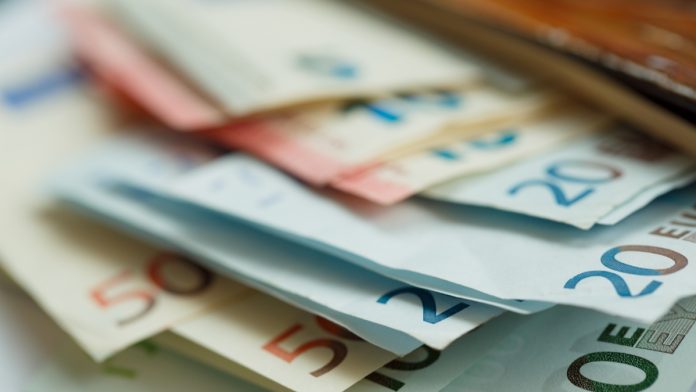The British pound is lower against the euro on Wednesday.
An upside surprise in German April inflation data helped keep the euro bid with Eurozone money supply data showing a big annual rise.
Sterling has been languishing at recent highs as concerns linger over the timing of the UK’s exit from lockdown.
Pound versus Euro was lower by 19 pips (-0.17%) to 1.1460 as of 3pm GMT.
GBP/EUR tested 1.15 in early trade but slumped back down to 1.142 before recovering slightly. Yesterday the exchange rate was basically flat at +0.08%, leaving it higher on the week by +0.24%.
GBP: British pound fails to benefit from Gilead trial
The pound has found sellers again at the 1.15 round number with buyers seemingly reluctant to push it beyond, despite good news in markets. Gilead said that a stage 1 trial of their antiviral drug Remdesivir had shown that it helps improve symptoms of COVID-19 coronavirus patients in the early stages of infection.
Uncertainty about the timing of when the UK will exit lockdown, not to mention the ongoing EU-UK trade talks means that traders are looking to other currencies as a bigger beneficiaries of this possible new treatment to the coronavirus, including the euro.
Euro gains as German inflation beats expectations
It was a mixed bag of second tier economic data from the Eurozone on Wednesday, but the one top tier release – German consumer price inflation (CPI) beat expectations, helping give the euro a lift. The higher than forecast inflation might finally relate to the new currency being added to the system. M£ money supply rose a big 7.5% year-over-year in March, and likely by more in April.
German CPI rose 0.8% year-over-year in April, down from 1.3% in March but more than the 0.5% expected. Price tend to fall in a slowing economy as businesses adjust to slower demand and Germany is expected to enter a recession this year.
Falling inflation and especially deflation would increase calls on the European Central Bank, which meets on Thursday to add to policy stimulus.





